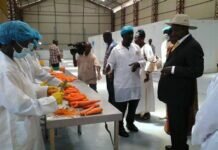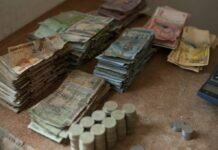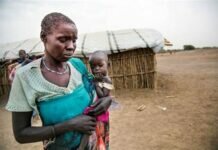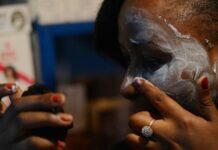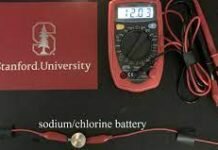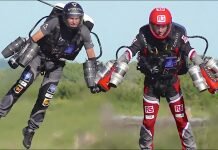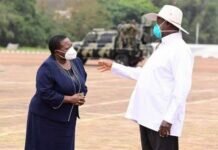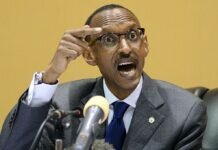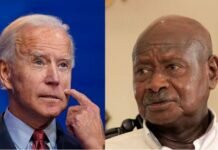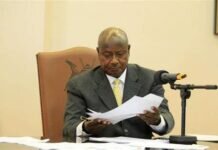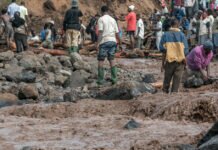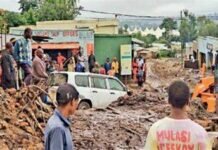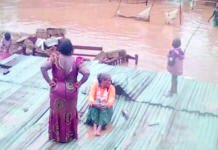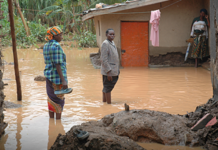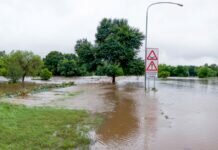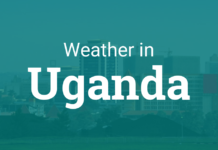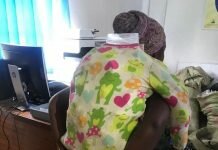The International Criminal Court (ICC) has issued an arrest warrant for Russian President Vladimir Putin. The court alleges he is responsible for war crimes, and has focused its claims on the unlawful deportation of children from Ukraine to Russia.
It says the crimes were committed in Ukraine from 24 February 2022 – when Russia launched its full-scale invasion. Moscow has denied the allegations and labelled the warrants as “outrageous”.
It is highly unlikely that much will come of the move – the ICC has no powers to arrest suspects, and can only exercise jurisdiction within its member countries – and Russia is not one of them. However it could affect the president in other ways, such as being unable to travel internationally.
Full statement: Statement by Prosecutor Karim A. A. Khan KC on the issuance of arrest warrants against President Vladimir Putin and Ms Maria Lvova-Belova
On 22 February 2023, I submitted applications to Pre-Trial Chamber II of the International Criminal Court for warrants of arrest in the context of the Situation in Ukraine.
Today, the Pre-Trial Chamber has issued arrest warrants in relation to the following two individuals:
• Mr Vladimir Putin, President of the Russian Federation; and
• Ms Maria Lvova-Belova, Commissioner for Children’s Rights in the Office of the President of the Russian Federation.
On the basis of evidence collected and analysed by my Office pursuant to its independent investigations, the Pre-Trial Chamber has confirmed that there are reasonable grounds to believe that President Putin and Ms Lvova-Belova bear criminal responsibility for the unlawful deportation and transfer of Ukrainian children from occupied areas of Ukraine to the Russian Federation, contrary to article 8(2)(a)(vii) and article 8(2)(b)(viii) of the Rome Statute.
Incidents identified by my Office include the deportation of at least hundreds of children taken from orphanages and children’s care homes. Many of these children, we allege, have since been given for adoption in the Russian Federation. The law was changed in the Russian Federation, through Presidential decrees issued by President Putin, to expedite the conferral of Russian citizenship, making it easier for them to be adopted by Russian families.
My Office alleges that these acts, amongst others, demonstrate an intention to permanently remove these children from their own country. At the time of these deportations, the Ukrainian children were protected persons under the Fourth Geneva Convention.
We also underlined in our application that most acts in this pattern of deportations were carried out in the context of the acts of aggression committed by Russian military forces against the sovereignty and territorial integrity of Ukraine which began in 2014.
In September last year, I addressed the United Nations Security Council and emphasised that the investigation of alleged illegal deportation of children from Ukraine was a priority for my Office. The human impact of these crimes was also made clear during my most recent visit to Ukraine. While there, I visited one of the care homes from which children were allegedly taken, close to the current frontlines of the conflict. The accounts of those who had cared for these children, and their fears as to what had become of them, underlined the urgent need for action.
We must ensure that those responsible for alleged crimes are held accountable and that children are returned to their families and communities. As I stated at the time, we cannot allow children to be treated as if they are the spoils of war.
Since taking up my position as Prosecutor, I have emphasised that the law must provide shelter to the most vulnerable on the front lines, and that we also must put the experiences of children in conflict at the centre of our work. To do this, we have sought to bring our work closer to communities, draw on advanced technological tools and, crucially, build innovative partnerships in support of our investigative work.
I am grateful for the support of many partners of the Office that have allowed us to move forward rapidly in the collection of evidence. I wish to express my thanks in particular to the Office of the Prosecutor General of Ukraine whose engagement has been essential in supporting the work my Office has carried out, including on the ground in Ukraine. Our participation in the Joint Investigation Team with national authorities from seven States, under the auspices of Eurojust, has also facilitated swift access to relevant information and evidence.
I will also continue to seek cooperation from the Russian Federation in relation to the Situation in Ukraine, and ensure my Office fully meets its responsibility pursuant to article 54 of the Rome Statute to investigate incriminating and exonerating circumstances equally.
Whilst today is a first, concrete step with respect to the Situation in Ukraine, my Office continues to develop multiple, interconnected lines of investigation.
As I stated when in Bucha last May, Ukraine is a crime scene that encompasses a complex and broad range of alleged international crimes. We will not hesitate to submit further applications for warrants of arrest when the evidence requires us to do so.
Source: Office of the Prosecutor | Contact:

